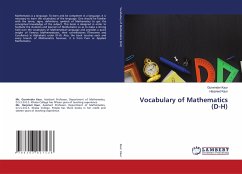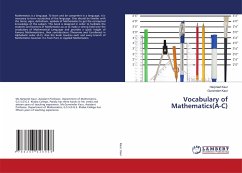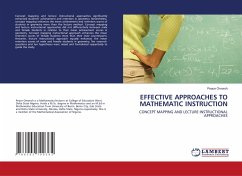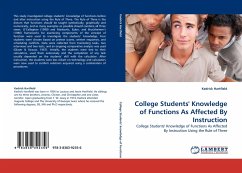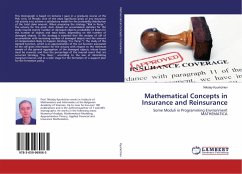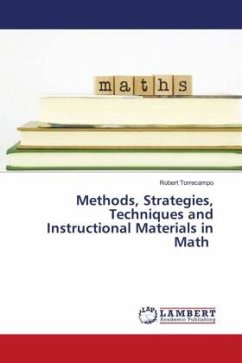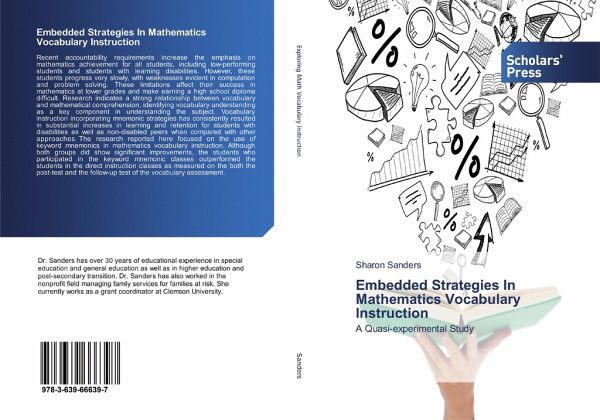
Embedded Strategies In Mathematics Vocabulary Instruction
A Quasi-experimental Study
Versandkostenfrei!
Versandfertig in 6-10 Tagen
62,99 €
inkl. MwSt.

PAYBACK Punkte
31 °P sammeln!
Recent accountability requirements increase the emphasis on mathematics achievement for all students, including low-performing students and students with learning disabilities. However, these students progress very slowly, with weaknesses evident in computation and problem solving. These limitations affect their success in mathematics at lower grades and make earning a high school diploma difficult. Research indicates a strong relationship between vocabulary and mathematical comprehension, identifying vocabulary understanding as a key component in understanding the subject. Vocabulary instruct...
Recent accountability requirements increase the emphasis on mathematics achievement for all students, including low-performing students and students with learning disabilities. However, these students progress very slowly, with weaknesses evident in computation and problem solving. These limitations affect their success in mathematics at lower grades and make earning a high school diploma difficult. Research indicates a strong relationship between vocabulary and mathematical comprehension, identifying vocabulary understanding as a key component in understanding the subject. Vocabulary instruction incorporating mnemonic strategies has consistently resulted in substantial increases in learning and retention for students with disabilities as well as non-disabled peers when compared with other approaches. The research reported here focused on the use of keyword mnemonics in mathematics vocabulary instruction. Although both groups did show significant improvements, the students who participated in the keyword mnemonic classes outperformed the students in the direct instruction classes as measured on the both the post-test and the follow-up test of the vocabulary assessment.



